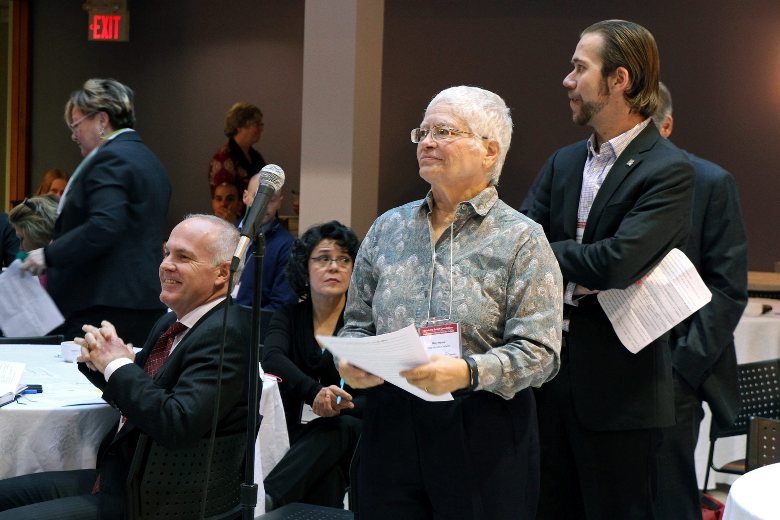Canadians who want to make their opinions known will have ample opportunity over the next few months as the Liberal government engages in a seemingly endless series of public consultations.

Do you have thoughts about marijuana legalization? Ottawa wants to hear them.
How about musings on the future of Canada Post, or how cigarettes should be packaged? Yep, those too.
And while you’re opining, there are also consultations underway on access to information, the defence review, our electoral system, climate change, official languages and how best to survive a nuclear meltdown. (No, really).
And that’s just the tip of the iceberg.
WATCH: Federal government announces launch of marijuana legalization task force

But as church basements and hotel conference rooms fill up with Canadians who have something to say, experts are suggesting that the government may have bitten off more than it can chew.
“It’s a lot, and if they’re without timelines (on some consultations), that’s even worse,” said Penny Collenette, a lawyer and professor who once worked in the office of ex-Liberal prime minister Jean Chrétien.
“If there is a process that’s adhered to, not so bad. But they can go over-budget. There’s all that other stuff that goes with it.”
Conrad Winn, a public affairs professor at Carleton University and longtime public opinion researcher, agreed.
“We could look backward a year from now, two years from now, and say this was an over-enthusiastic government that didn’t quite understand why it was elected, and didn’t quite understand how to stay elected,” said Winn, who has led government consultations in the past.
“One of the principles of the Chrétien regime was don’t bother people too much … If you can stay out of people’s faces, you have better chance of success.”
What’s the point?
So when all is said and done, what does all this talking actually achieve?
Collenette explained that, done right, public consultations can give average people the sense that they are being listened to, as well as alerting the government to possible “unintended consequences” of a proposed policy.
The recent Brexit vote in the United Kingdom is a prime example of what can happen when you leap before you look, she noted.
“Who really understood that the border in Northern Ireland was going to be impacted again? Who really understood that Scotland was going to make a play for independence again? Had they really thought that through? I think more consultations ahead of Brexit might have helped.”
WATCH: Justin Trudeau says he plans to consult with Canadians on Trans-Pacific Partnership

According to Winn, public consultations can provide governments — especially new ones — with the opportunity to show how open and accountable they are, and how much they respect the public.
In addition, said Winn, they can strongly influence public opinion on a given subject.
“Absolutely, no question of it,” he said, adding that the consultations on marijuana legalization, announced just last week, may have been launched with just that in mind.
“The goal would be to bring people towards the centre,” he said. “Make people (who are) hostile to (legalization) less hostile, and people who are resolutely for liberalization understanding that that can’t have their complete way.”
Are they just stalling?
And then there’s the theory that consultations are simply stalling tactics.
With a platform packed with major promises, some critics have suggested that Justin Trudeau and his cabinet want to be seen to do be doing something on various files, even if the legislation itself is months or years away.
John Manley, a Liberal former deputy prime minister, recently joked that Ottawa could risk developing a severe case of “consultation constipation.”
That’s plausible, Collenette said.
“You look at this government, not even a year into their mandate, they’ve had an awful lot on their plate,” she noted.
“Strategically, there (may be) some thought of ‘Oh God, can we just slow it down a little bit on issue X or Y?’”
But political trouble will arise, she warned, if there is too long a delay in coming up with policies once the consultations are done, or if the government doesn’t disclose what it learned from them.
The advent of the Internet has certainly made consulting easier in some ways, Collenette said, but the flip-side is that you can end up with too much input. It used to be simpler.
“There would be someone who was the head of it, various people would be asked to speak, members of the public could come or not come. Today, with social media, this is a whole different tool … I think it’s become more complicated today than it used to be.”




Comments